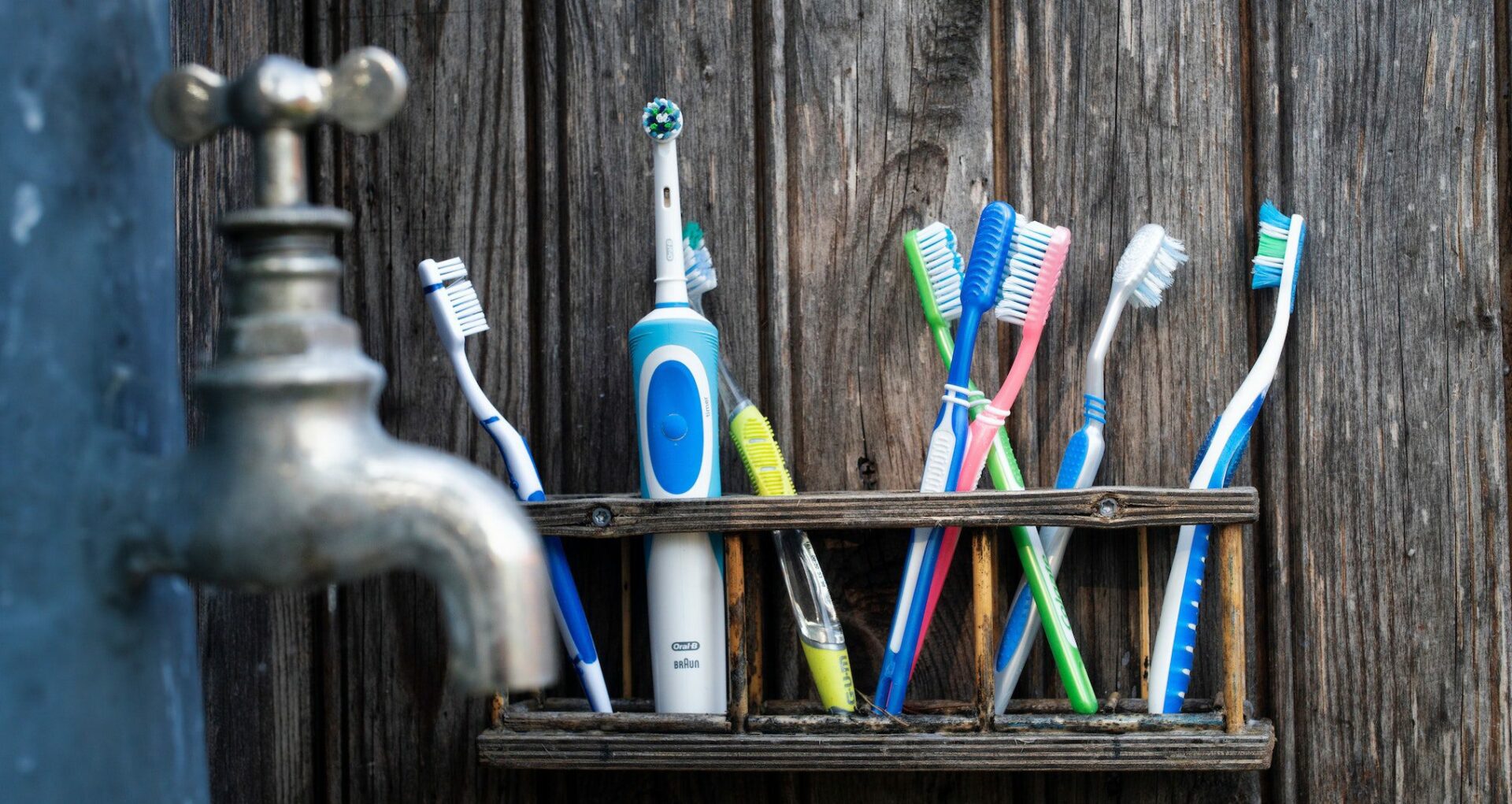Regular brushing and flossing are the foundations of oral health and hygiene for adults across the globe. These practices clean bacteria and food particles off of your teeth and gums that could become plaque. When not cleaned often enough, plaque in your mouth can lead to tooth decay and gum disease, conditions affecting 3.5 billion people worldwide, according to the World Health Organization.
With the emergence of new technologies in the electric toothbrush world, many people are now asking what device is best to clean their teeth. According to the American Dental Association (ADA), electric and manual toothbrushes are both effective at removing plaque. However, the key to which is more effective is the person using the toothbrush: “If you are a wonderful brusher and a wonderful flosser … then the manual toothbrushes are just great,” says Dr. Kimberly Harms, a dentist in Minnesota.
Standard, manual toothbrushes have been around for a long time, and even though they don’t have the extra features of electric toothbrushes, they still do an adequate job of cleaning your teeth if you use them properly. However, the bells and whistles of an electric toothbrush may be necessary for the user to adequately clean their teeth, depending on an array of limitations that can be aided by those additional features.
Brushing Too Hard
One problem manual toothbrush users often run into is brushing their teeth too hard, according to a 2012 study in Clinical Oral Investigations. The spinning and vibration electric toothbrushes are capable of does most of the actual brushing work for you, whereas standard toothbrushes require the user to do the physical labor. This leads many people to end up brushing their teeth with too much force, which can lead to oral health issues. Brushing your teeth too hard can cause your gums to recede, allowing plaque and bacteria to grow in that space, eventually leading to damage to the tooth’s enamel. Electric toothbrushes are programmed to vibrate and spin at exactly the right speed and force to properly clean your teeth, so electric toothbrush users do not run into this problem.
Conversely, children and people who suffer from physical disabilities such as arthritis may find it difficult to physically maneuver a manual toothbrush and apply enough pressure to adequately clean their teeth. Because electric toothbrushes do the brushing work for you, the user only has to glide the brush along their teeth. These powered brushes are often necessary for children or those with mobility limitations to properly maintain their oral health.
Technology and Features
Another perk of electric toothbrushes is they are equipped with all the bells and whistles to help you improve your brushing habits. These added features make it easier to maintain proper oral health. Electric toothbrushes are often equipped with several different brushing modes, each one specialized for a different type of cleaning: specialized oscillating for sensitive teeth, sonic technology, gum-massaging, or even whitening benefits.
These brushes also often include pressure indicators to let you know when you’re applying too much pressure and may be at risk of damaging your gums. Most importantly, electric toothbrushes feature timers to let you know how long you’ve been brushing and when you’ve been brushing long enough. With the ever-increasing fast-pace of today’s modern world, it can be easy to do a drive-by brush job without paying attention to whether or not you’ve brushed for the recommended time.
With built-in timers, electric toothbrushes don’t let you get away with that. In fact, a 2015 study from the Journal of Clinical Dentistry found that participants focused more on properly and sufficiently brushing their teeth when they used an electric toothbrush compared to those who used a standard one.
Superior Plaque Removal
Across the last two decades, studies have begun to show that electric toothbrushes are indeed superior at removing plaque compared to standard brushes. In 2000, the Journal of the American Dental Association published a study reporting on dental professionals’ monitoring of over 17,000 patients.
Results of the study showed that powered brushes had a positive effect on the oral health of more than 80% of the participating patients. In 2003, Medscape’s Cochrane Database of Systematic Reviews released a study showing that electric brushes removed significantly more plaque, reducing occurrences of gingivitis, compared to manual brushes. These powered brushes come equipped with bristles that rotate and vibrate, removing plaque buildup from your gums and teeth.
An update to the study was released in 2014 after researchers analyzed 56 other reports. This update reinforced the findings of the original study: when compared with standard toothbrushes, “there was an 11% reduction in plaque at one to three months of use and a 21% reduction in plaque when assessed after three months of use…for gingivitis, there was a 6% reduction at one to three months of use and an 11% reduction when assessed after three months of use.”
Book Your Appointment with Advanced Dental Care of Anderson
While using the right type of toothbrush is important for your oral health, it is equally important to maintain regular dental appointments. Book your appointment at Advanced Dental Care of Anderson today and get started on the path to better dental care!

